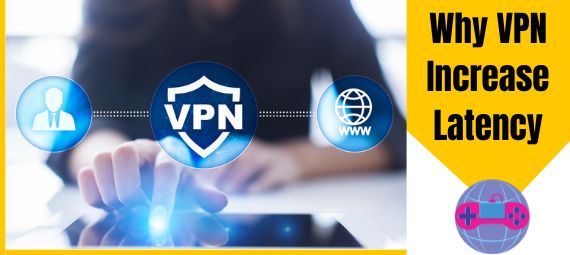VPNs, or virtual private networks, are a popular way to improve online security and privacy. We all know that by routing traffic through a VPN server, users can protect their data from spying eyes and access content that might be blocked in their location.
VPNs also offer some advantages for gamers. For example, they can help players connect to servers in other parts of the world and avoid lag. However, not all VPNs are created equal. In fact, some VPNs can actually increase latency and cause gamers to experience more lag. So it is always better for you to choose a No lag VPN if you are a gamer or streamer.
So, why do some VPNs increase latency? That’s what we’ll answer in this article, but to tackle that, we first need to talk about…
How VPNs work?
A VPN creates a private, encrypted tunnel between your device and the VPN server. This tunnel is used to route all of your traffic, including gaming traffic, through the server.
The server then acts as a middleman, connecting you to the game servers and relaying information back and forth.
Because your traffic is going through an extra stop (the VPN server), there is potential for increased latency. No different from video game servers, the further away the VPN server is, the greater the chance for increased latency.
Additionally, the number of users on the VPN server can also contribute to increased latency. If many people use the same server, your connection will have to compete with theirs for resources. This can lead to slowdowns and increased latency.
Finally, some VPN protocols are simply better than others when it comes to gaming. For example, OpenVPN is known for being one of the fastest protocols.
Can a VPN reduce latency or ping?
In certain instances, using a VPN for PC or mobile might help you enjoy better ping times and multi-player gaming performance.
The network path/route used by your ISP to transport traffic between you and the game server might be either congested or excessively long and circuitous. When this occurs, you may experience performance benefits if you connect to a VPN server that has a more direct and less congested connection to the game’s server.
This isn’t common. VPN connections, on the whole, add latency to your connection and packets take longer to make the return trip than they would otherwise.
If the added latency from routing your traffic through the VPN server is less than the amount of latency removed by having a shorter, less congested, and/or more direct route to the game server, you will notice an improvement.
There are several elements to consider, and the only way to know whether a certain VPN will enhance your online game performance is to put it through its paces. Some VPNs may improve your gaming experience while others might have the opposite effect.
Latency isn’t as important as consistency
Ping isn’t as big an issue as packet loss.
Packet loss occurs when data packets that are sent from your device to the game server (or vice versa) are lost along the way. These packets need to be resent, which adds even more latency.
A good VPN can help reduce packet loss by using protocols that are known for their reliability and by avoiding overloaded servers.
Additionally, a good VPN will offer consistent speeds. This is important because even if a VPN has low latency, it won’t do you any good if the connection is always dropping or slowing down.
it’s this packet loss that makes it more difficult to play online games, not necessarily the higher latency.
To sum up
Some VPNs can actually increase latency and cause gamers to experience more lag. This is because they add an extra stop (the VPN server) to the traffic’s journey, which can lead to increased latency. Additionally, the number of users on the VPN server can also contribute to increased latency. However, in certain instances, using a VPN might help you enjoy better ping times and multi-player gaming performance. This is because the network path/route used by your ISP to transport traffic between you and the game server might be either congested or excessively long and circuitous. When this occurs, you may experience performance benefits if you connect to a VPN.
